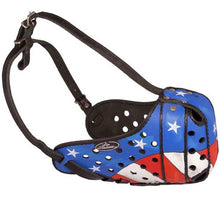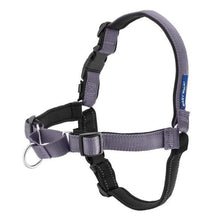Fostering Social Skills In Puppies: Essential Early Training To Ensure Your German Shepherd Puppy Grows Into A Well-Adjusted Adult Dog

German shepherd puppies grow up fast. Before you know it, your adorable, silly puppy will be an adult dog so enjoy every moment with them that you can.
But puppyhood isn’t all about having fun. It’s an important time for your dog. The experiences they have during the first year of their life will lay the foundation for their future behavior.
Since German shepherds are intelligent and were bred to work, they must begin their training young. They also love to please and form very strong bonds with their owners. They thrive with positive training, and consistency, and enjoy learning new things.

Without training and socialization, they can become destructive, get into mischief, and develop behavior problems that are hard to reverse. Socialization and training to build their confidence cannot be emphasized enough.
How you raise your puppy will influence their development, which has lifelong consequences. You can take steps to raise a confident well-adjusted dog and avoid many behavior problems by setting your puppy up for success.
Most behavior problems such as anxiety, fear, insecurity, resource guarding, and reactivity take root during puppyhood and are a result of a lack of training and socialization. German shepherds have a sharp mind, and they carry all their positive experiences into adulthood.
By taking the steps below you can raise a well-adjusted adult dog:

Socialization
Your puppy should be socialized between 12 and 16 weeks. This is the time to introduce your puppy to people, other dogs, places, and experiences so they are comfortable everywhere they go.
You’ll want to keep their interactions safe, positive, and fun and protect them from negative or scary experiences, such as aggressive dogs or people. Introduce them to your friends and dogs that you can trust, textures (such as flooring, sand, and grass), new places, sounds, smells, toys, and grooming supplies.
By keeping sessions short and fun or even taking a puppy class, you will help build their confidence so that they are ready and willing to learn new things and not develop unnecessary fears or phobias or become reactive out of fear.

Avoid Overwhelming and Frightening Situations
Whatever you’re doing with your puppy, it is important to protect them from becoming overwhelmed or scared. You do not want them to become worried or associate a person, place, or situation with something negative. Keep their experiences as positive as you can and offer lots of praise and treats when you’re trying new things.
Training
Training your puppy will begin when you bring them home and continue throughout their life. However, it is important to invest in plenty of training time during their first year.
German shepherds respond very well to positive training and praise. House, crate, and very house training all begin during puppyhood. Place, recall, impulse control, and learning commands are all skills you can teach your puppy during their first year.
Praise, consistency, and setting them up for success are great ways to build their confidence and strengthen the bond you share so they’ll be prepared to go anywhere with you in the future.

It’s Okay To Be Alone
Your puppy must learn that it’s okay to rest and spend time alone. You can start with crate training or an exercise pen and let them get used to entertaining themselves while teaching them you will come back. Start with short breaks and provide them with a safe chew toy to help make the experience positive.
Exercise
Training will set your German shepherd up for success, but exercise is just as important. They are active dogs that need to exercise their body and mind. By providing an outlet for their energy, you will help prevent boredom, destructive chewing, anxiety, help them settle down, and meet the needs of the breed.
There are many ways you can achieve this such as playtime, walks, hikes, organized dog sports, and much more. The type of exercise isn’t as important as the fact that you provide enough age-appropriate exercise every day.

Mental Stimulation
Socialization, training, and exercise provide your dog with mental stimulation. But you can also provide mental stimulation by giving your dog toys and chews to occupy their mind and desire to chew during their downtime.
Playtime, Love, and Affection
Patience, play, pets, and positive interactions will help your dog feel confident and loved. German shepherds are devoted, loyal dogs that thrive on affection and praise and love to interact and be close to their owners.
Restraint and Touch
Your puppy needs to learn that it is okay to be restrained and have parts of their body touched, like their mouth, paws, claws, and ears. A leash, harness, and even crate training are all parts of restraint and important for their future, such as when going to the vet or traveling. They must learn that restraint and touch are not harmful, and this training should begin right away.

Routines and Consistency
You can also help build confidence by sticking to a routine and providing consistency. By feeding meals, giving potty breaks, training, and exercising on a schedule, you will help your dog understand what is expected of them, show them what they can expect from you, and lessen the anxieties that can develop when they live in a state of constant uncertainty.
Nutrition
The right diet is important to ensure your dog has the nutrients they need for the growth and development of their joints, muscles, and bones. By choosing a food that is appropriate for the growth and maintenance of large breed dogs, you can help protect your dog from injuries while ensuring they are healthy and nurtured overall.
Car Rides
Many dogs love car rides but for some, it’s stressful. Teaching your dog how to safely ride in the car is a skill they’ll carry with them throughout their lifetime and it’s important for every dog to learn.

Routine Vet Care
Ensuring your dog is healthy is important to their mental and physical health. Dogs will often hide health problems when they can. Health problems can negatively influence your dog’s behavior, personality, and can manifest as behavior problems.
By following these tips, you can help your dog grow up to be the well-adjusted dog they were born to be. Well-adjusted dogs are a pleasure to be around, can go more places with their owners, and have more fun in life than dogs that suffer from behavior problems.
We hope that these tips are helpful to you. Please feel free to share with your friends.
You might also like: The Importance Of Regular Exercise For Your Dog's Well-being
























